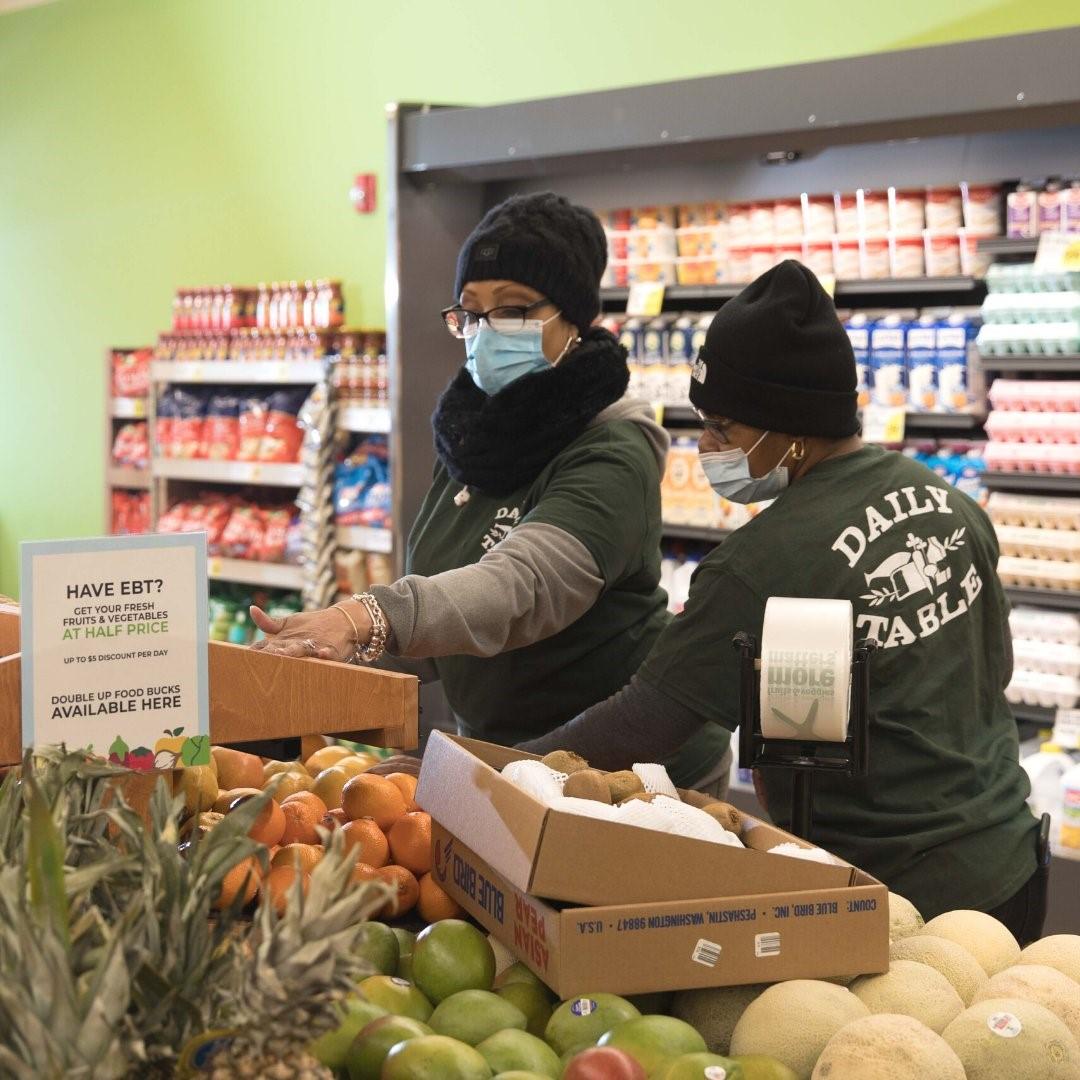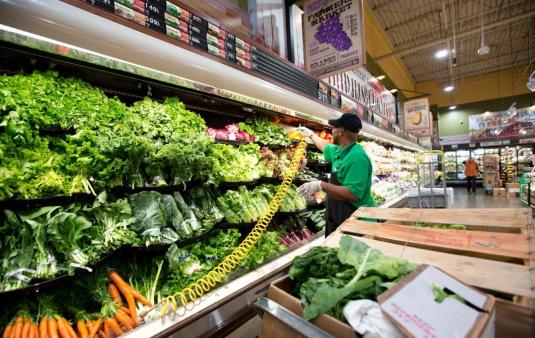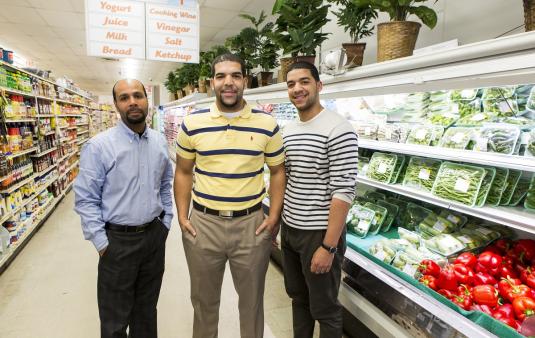As Daily Table COO Michael Malmberg explains, there is a difference between food insecurity and nutritional insecurity. The first is simply lack of access to calories. Relatively few in the US suffer from that; as he says, “There is an abundance of low-cost, highly processed foods filled with sodium and sugar.” Conversely, economic access to healthy food is a serious issue in 21st-century America. Daily Table is out to change that.
The brainchild of Doug Rauch, a former president of Trader Joe’s, Daily Table community grocery stores provide access to fresh, healthy and convenient food at truly affordable prices. All their food is SNAP-eligible, and fresh fruits and vegetables are 50% off their already low prices for SNAP patrons through their Double Up Food Bucks program. Through regular price comparisons, a sample basket of grocery staples is consistently 30% less than other supermarkets in the area. Critically, all of the food they sell meets nutritional guidelines for healthy levels of sugar and sodium and is culturally appropriate to the neighborhood.
“We offer everyday basics: fresh produce, meats, dairy, as well as prepared foods that are made in-house,” Malmberg continues. A nonprofit, Daily Table sources much of their food from surplus and overstocks that allow them to buy great products at low prices, often 30% to 70% less than one would pay at other stores. He notes, “We have a wide supplier network that provides donations and discounts based on mission alignment.” They also use volunteer support in their kitchens and stores to further reduce overhead.
Of course, economics are still a challenge. With three stores, earned income does not fully cover operating costs. Daily Table currently covers about two-thirds of operating expenses with earned income, a rarity for a nonprofit, particularly for one focused on food access. By expanding to additional stores, Daily Table expects to to improve financial sustainability by achieving greater economies of scale and delivering more and more social impact for each philanthropic dollar. The result: a scalable model of food delivery that can then be replicated nationwide.
That will not only mean healthier food options for many thousands of people, it will mean hundreds of jobs.
“We currently employ about 65 people; 85% of them come from the immediate community. They run the registers, take inventory, price goods. They earn a living wage, with an opportunity for upward mobility and job growth. And as we expand as a company, that will create a pathway to better jobs,” Malmberg explains.
BlueHub has been part of making expansion possible, supplying critical funding to catalyze growth. He says, “We are somewhat unique relative to other organizations. BlueHub has found creative ways to structure the financing to align with our specific operations and enable us to expand quickly.”
Perhaps most important, expansion will widen the net of dignity that Daily Table provides. “Many people who qualify for a food bank choose not to use them. They don’t want a handout; they want to provide for their families. Moreover, no food bank supplies everything you need to get through the month. We are open 7 days a week, including nights and weekends, in convenient locations. And we work to earn our customers’ patronage every day.”
Malmberg clarifies, “We are open and welcoming to everyone, with no means testing. The more shoppers we have, the more financially stable we are, the more we can grow.” And the more they can make nutritious food available to all.


